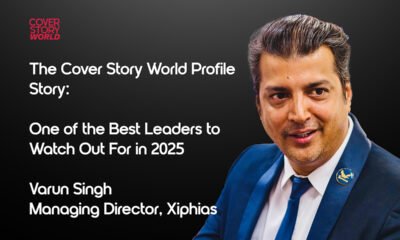Leadership
AI & Leadership: How CEOs Are Using AI to Make Smarter Decisions

Harnessing AI for Strategic Leadership: How CEOs Are Making Smarter Decisions
The AI Revolution in Corporate Leadership
In the rapidly evolving landscape of corporate leadership, artificial intelligence (AI) has emerged as a game-changing force, revolutionizing the way CEOs approach decision-making and strategic planning. This technological paradigm shift is reshaping the very foundations of executive leadership, offering unprecedented opportunities for enhanced efficiency, accuracy, and innovation.
The integration of AI into leadership practices represents a seismic shift in how organizations operate and compete in the global marketplace. CEOs who embrace this transformation are finding themselves at the forefront of a new era in corporate governance, where data-driven insights and predictive analytics inform critical business decisions.
As AI continues to permeate various aspects of business operations, it is becoming increasingly clear that its impact on leadership is not just significant but transformative. From streamlining complex processes to uncovering hidden patterns in vast datasets, AI is empowering CEOs to lead with greater confidence and foresight than ever before.
Understanding AI’s Role in Strategic Decision-Making
At its core, AI’s role in strategic decision-making is to augment and enhance human intelligence rather than replace it. By processing and analyzing vast amounts of data at speeds unattainable by human cognition, AI provides CEOs with a comprehensive view of their business landscape, enabling them to make more informed and timely decisions.
AI algorithms can identify trends, predict outcomes, and suggest optimal courses of action based on historical data and real-time information. This capability allows leaders to anticipate market changes, assess risks, and capitalize on opportunities with greater precision and speed.
Moreover, AI-powered decision support systems can simulate various scenarios, helping CEOs evaluate the potential consequences of their choices before implementation. This predictive capability significantly reduces the margin for error and increases the likelihood of successful outcomes in strategic initiatives.
How CEOs Are Leveraging AI for Competitive Advantage
Forward-thinking CEOs are harnessing the power of AI to gain a competitive edge in several key areas:
- Market Intelligence: AI-driven analytics tools are being used to monitor market trends, consumer behavior, and competitor activities in real-time, allowing CEOs to make proactive strategic adjustments.
- Operational Efficiency: Machine learning algorithms are optimizing supply chains, resource allocation, and production processes, leading to significant cost reductions and improved productivity.
- Customer Experience: AI-powered chatbots and personalization engines are enhancing customer interactions, leading to increased satisfaction and loyalty.
- Innovation: AI is accelerating product development cycles by analyzing customer feedback and market data to identify unmet needs and opportunities for innovation.
- Risk Management: Predictive models are helping CEOs identify potential risks and develop mitigation strategies before they materialize.
By leveraging these AI capabilities, CEOs are positioning their organizations to outperform competitors and thrive in an increasingly complex and dynamic business environment.
Key AI Technologies Transforming Leadership Practices
Several AI technologies are at the forefront of transforming leadership practices:
1. Machine Learning
Machine learning algorithms enable systems to learn from data and improve performance over time without explicit programming. CEOs are using machine learning for:
- Predictive analytics in sales forecasting
- Fraud detection in financial transactions
- Personalized marketing campaigns
2. Natural Language Processing (NLP)
NLP allows machines to understand and interpret human language. Applications in leadership include:
- Sentiment analysis of customer feedback and social media
- Automated report generation and summarization
- Advanced chatbots for internal and external communication
3. Computer Vision
This technology enables machines to interpret and analyze visual information. CEOs are applying computer vision in:
- Quality control in manufacturing
- Security and surveillance systems
- Facial recognition for personalized customer service
4. Deep Learning
A subset of machine learning, deep learning mimics the human brain’s neural networks. It’s being used for:
- Complex pattern recognition in big data
- Autonomous decision-making in robotics
- Advanced speech and image recognition
These technologies are not only enhancing decision-making capabilities but also freeing up valuable time for CEOs to focus on high-level strategic thinking and relationship-building.
Case Studies: CEOs Successfully Implementing AI in Decision-Making
Case Study 1: Retail Giant Revolutionizes Supply Chain Management
The CEO of a multinational retail corporation implemented an AI-driven supply chain optimization system. The results were remarkable:
- 30% reduction in inventory costs
- 25% improvement in order fulfillment accuracy
- 20% increase in overall supply chain efficiency
By leveraging AI to predict demand patterns and optimize inventory levels, the CEO transformed the company’s operations, leading to significant cost savings and improved customer satisfaction.
Case Study 2: Financial Services Firm Enhances Risk Assessment
A leading financial services firm’s CEO spearheaded the adoption of an AI-powered risk assessment platform. The outcomes were impressive:
- 40% reduction in loan defaults
- 35% increase in accurate fraud detection
- 50% faster loan approval process
The AI system’s ability to analyze vast amounts of data and identify subtle risk indicators enabled the firm to make more informed lending decisions, significantly improving its risk management capabilities.
Case Study 3: Healthcare Provider Improves Patient Outcomes
The CEO of a large healthcare provider implemented an AI system for diagnostic assistance and treatment recommendations. The impact was substantial:
- 15% reduction in misdiagnoses
- 20% improvement in treatment efficacy
- 25% decrease in average length of hospital stays
By augmenting medical professionals’ expertise with AI-driven insights, the CEO facilitated better patient care and more efficient resource utilization across the healthcare network.
Overcoming Challenges in AI Adoption for Leadership
While the benefits of AI in leadership are clear, CEOs face several challenges in its adoption:
- Data Quality and Availability: AI systems require large amounts of high-quality data to function effectively. CEOs must ensure their organizations have robust data collection and management practices in place.
- Integration with Existing Systems: Implementing AI often requires significant changes to existing IT infrastructure. Leaders need to carefully plan and execute the integration process to minimize disruption.
- Skill Gap: There is a shortage of professionals with the necessary skills to develop and maintain AI systems. CEOs must invest in training programs and recruitment strategies to build AI capabilities within their organizations.
- Ethical Concerns: The use of AI raises important ethical questions, particularly around data privacy and algorithmic bias. Leaders must establish clear ethical guidelines and governance frameworks for AI implementation.
- Resistance to Change: Employees may be resistant to AI adoption due to fears of job displacement. CEOs need to communicate the benefits of AI clearly and provide reassurance about its role in augmenting rather than replacing human workers.
Overcoming these challenges requires a strategic approach, clear communication, and a commitment to continuous learning and adaptation.
The Future of AI-Driven Leadership: Trends and Predictions
As AI technology continues to evolve, several trends are likely to shape the future of leadership:
- Augmented Intelligence: The focus will shift from artificial intelligence to augmented intelligence, where AI systems work in tandem with human leaders to enhance decision-making capabilities.
- Emotional AI: Advancements in emotional intelligence AI will enable leaders to better understand and respond to the emotional needs of their employees and customers.
- Autonomous Systems: Increased automation of routine tasks will allow CEOs to focus more on strategic initiatives and creative problem-solving.
- Personalized Leadership: AI will enable more personalized leadership approaches, tailoring communication and management styles to individual team members’ needs and preferences.
- Predictive Governance: AI-powered predictive analytics will play a larger role in corporate governance, helping boards and executives anticipate and mitigate potential issues before they arise.
These trends suggest a future where AI becomes an indispensable tool for effective leadership, enabling CEOs to navigate increasingly complex business environments with greater agility and insight.
Developing AI Literacy: Essential Skills for Modern CEOs
As AI becomes more integral to business operations, CEOs must develop a new set of skills to effectively leverage this technology:
- Data Interpretation: The ability to understand and interpret complex data sets and AI-generated insights is crucial for informed decision-making.
- Algorithmic Thinking: A basic understanding of how AI algorithms work will help CEOs better evaluate AI solutions and their potential impact on the business.
- Ethical AI Management: Leaders need to be well-versed in the ethical implications of AI and be able to establish guidelines for responsible AI use within their organizations.
- Adaptive Learning: The rapid pace of AI development requires CEOs to cultivate a mindset of continuous learning and adaptation.
- Cross-functional Collaboration: Effective AI implementation often requires collaboration across different departments. CEOs must be skilled in fostering interdisciplinary teamwork.
- Strategic AI Vision: The ability to develop a long-term strategic vision for AI integration that aligns with overall business objectives is essential for success.
By developing these skills, CEOs can position themselves and their organizations to fully capitalize on the potential of AI-driven leadership.
Ethical Considerations in AI-Assisted Leadership
As AI becomes more prevalent in decision-making processes, CEOs must grapple with a range of ethical considerations:
- Transparency: Leaders must ensure that AI-driven decisions are explainable and transparent, particularly when they impact employees or customers.
- Bias Mitigation: AI systems can perpetuate or amplify existing biases. CEOs need to implement rigorous testing and monitoring to identify and address potential biases in AI algorithms.
- Data Privacy: The collection and use of data for AI applications must be balanced with individuals’ rights to privacy and data protection.
- Accountability: Clear lines of accountability must be established for decisions made with AI assistance. CEOs should not abdicate responsibility to AI systems.
- Job Displacement: The ethical implications of AI-driven automation on workforce needs careful consideration, with plans for reskilling and redeployment where necessary.
- Fairness: Ensuring that AI systems make fair and equitable decisions across different demographic groups is a critical ethical imperative.
By addressing these ethical considerations proactively, CEOs can build trust in AI-assisted leadership and ensure that the technology is used in a way that aligns with organizational values and societal expectations.
Balancing Human Intuition with AI Insights in Decision-Making
The most effective leadership approach in the age of AI is one that combines the strengths of both human intuition and AI-driven insights:
- Complementary Strengths: Human leaders bring creativity, empathy, and contextual understanding, while AI excels at processing vast amounts of data and identifying patterns.
- Critical Evaluation: CEOs should critically evaluate AI-generated recommendations, using their experience and judgment to assess the feasibility and potential consequences of proposed actions.
- Scenario Planning: Use AI to generate multiple scenarios, but rely on human insight to navigate complex, nuanced situations that may not be fully captured by data.
- Emotional Intelligence: While AI can provide data-driven insights, human leaders are better equipped to handle the emotional aspects of decision-making, particularly in sensitive situations.
- Ethical Oversight: Human judgment is crucial in ensuring that AI-assisted decisions align with ethical principles and organizational values.
- Continuous Learning: Both AI systems and human leaders should be engaged in a process of continuous learning and improvement, with each informing and enhancing the capabilities of the other.
By striking the right balance between human intuition and AI insights, CEOs can make more informed, nuanced decisions that leverage the best of both worlds.
Measuring the Impact of AI on Leadership Effectiveness
To ensure that AI is truly enhancing leadership effectiveness, CEOs must establish clear metrics and evaluation processes:
- Decision Quality: Measure the accuracy and outcomes of decisions made with AI assistance compared to traditional methods.
- Time Efficiency: Assess the reduction in time spent on routine tasks and the increase in time available for strategic thinking.
- Innovation Metrics: Track the number and quality of new ideas and initiatives generated with AI support.
- Employee Satisfaction: Monitor employee engagement and satisfaction levels as AI is integrated into leadership practices.
- Financial Performance: Evaluate the impact of AI-assisted leadership on key financial indicators such as revenue growth and profitability.
- Adaptability Index: Measure the organization’s ability to respond quickly to market changes and new opportunities.
- Stakeholder Trust: Assess the level of trust and confidence in leadership among various stakeholders, including employees, customers, and investors.
By regularly evaluating these metrics, CEOs can refine their approach to AI integration and demonstrate the tangible benefits of AI-assisted leadership to stakeholders.
Conclusion: Embracing AI for Smarter, More Agile Leadership
The integration of AI into leadership practices represents a transformative opportunity for CEOs to enhance their decision-making capabilities and drive organizational success. By leveraging AI technologies, leaders can gain deeper insights, anticipate market trends, and respond more effectively to complex challenges.
However, the successful implementation of AI in leadership requires a thoughtful approach that balances technological capabilities with human judgment and ethical considerations. CEOs must develop new skills, foster a culture of innovation and continuous learning, and establish clear guidelines for responsible AI use.
As we look to the future, it is clear that AI will play an increasingly central role in shaping effective leadership strategies. Those CEOs who embrace this technology while maintaining a strong ethical foundation and valuing human intuition will be best positioned to lead their organizations to new heights of success in an increasingly complex and dynamic business landscape.
Ready to transform your leadership approach with AI? Take the first step towards smarter decision-making by scheduling a consultation with our AI integration experts. Discover how tailored AI solutions can enhance your strategic capabilities and drive your organization’s success. Contact us today to begin your journey towards AI-powered leadership excellence.
Leadership
Varun Singh (XIPHIAS): Orchestrating Trust, Tech & Transformation at the Nexus of Global Mobility
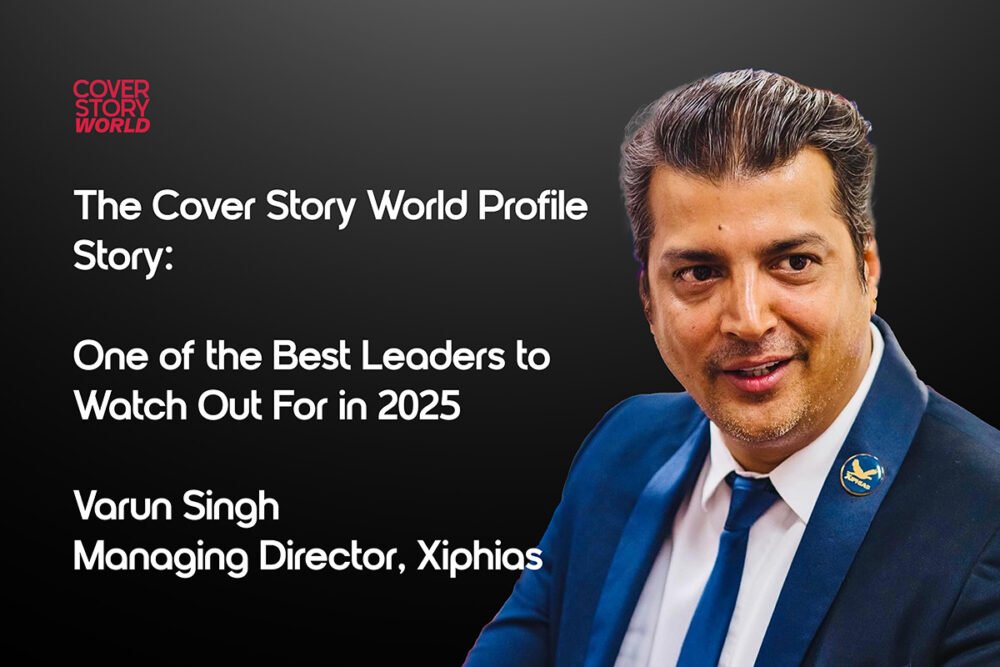
The Cover Story World Profile Story: One of the Best Leaders to Watch Out For in 2025 – Varun Singh, Managing Director, Xiphias
Dubai, UAE – In the high-stakes world of investment migration, where fortunes are moved and futures are built, Varun Singh, Managing Director of XIPHIAS Investment Migration Inc., isn’t just playing the game – he’s rewriting its rules. A Certified Investment Migration Consultant and Fellow of the prestigious Investment Migration Council (IMC, Geneva), Singh boasts over 16 years of leadership shaping how individuals, families, and corporations navigate global residency and citizenship. As we look towards 2025, his strategic relocation to Dubai, unwavering ethical compass, and audacious vision for India position him unequivocally as One of the Best Leaders to Watch Out For in 2025.
Varun Singh Linkedin – Click to View
The Genesis: Seeing Beyond the Transaction
Singh’s leadership journey was forged early by a fundamental insight that diverged from industry norms. “A transformational turning point,” he recalls, “was realizing early that investment migration is not just transactional—it’s about guiding dreams, emotions, and life transformations.” This epiphany became the bedrock of XIPHIAS. Rejecting a purely numbers-driven approach, Singh built the firm on pillars of empathy, ethics, and “human-first leadership, grounded in integrity and trust.” This foundational principle – recognizing the profound human impact beneath complex financial and legal structures – set the tone for a distinct leadership style and a company culture that resonates deeply in a sector often clouded by opacity.
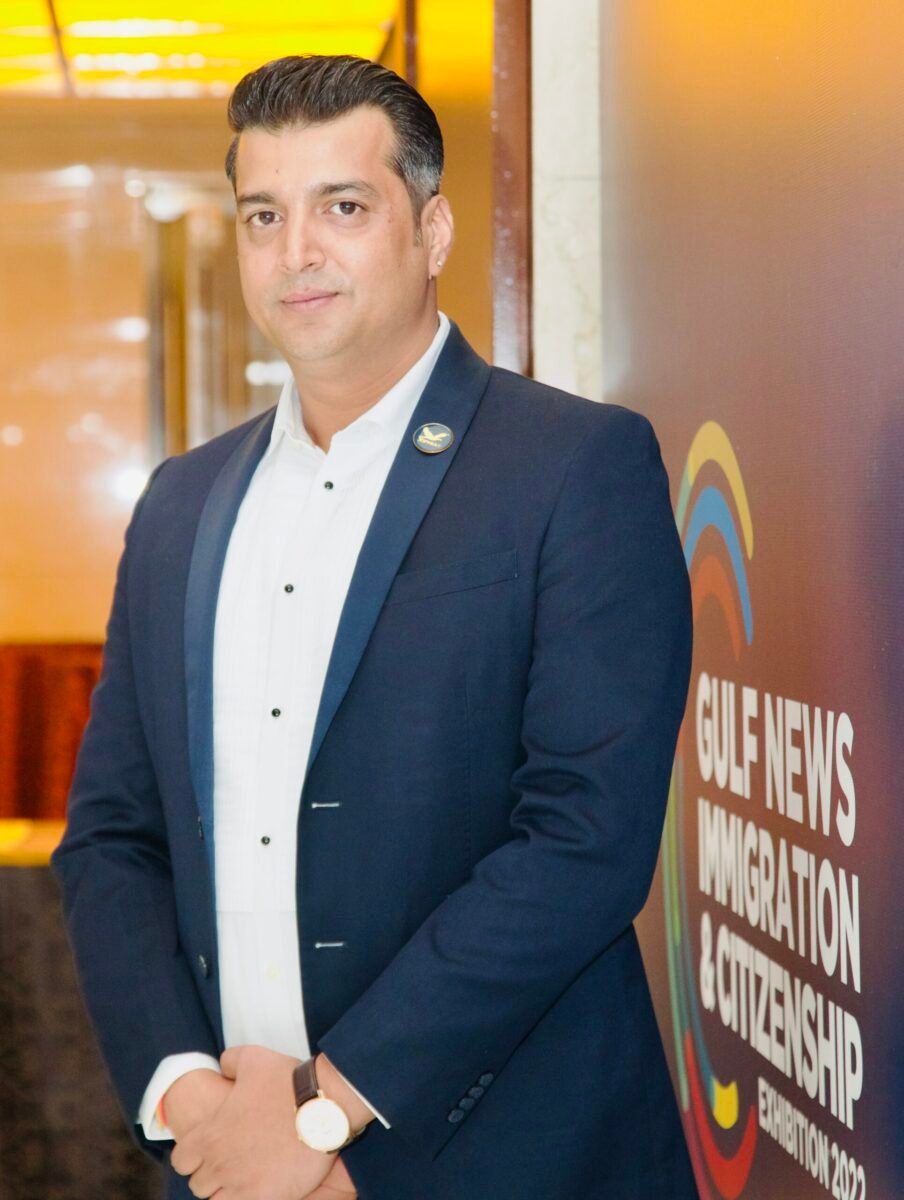
Varun Singh, Managing Director,
XIPHIAS Investment Migration Inc
2024-2025: The Dubai Catalyst & Scaling Impact
Singh’s most notable recent achievement underscores his strategic boldness: his decisive personal relocation to Dubai in 2024-2025. While XIPHIAS Immigration DMCC has operated in the Emirate since 2016, Singh’s move signifies far more than a change of address. It represents a calculated intensification of XIPHIAS’s global strategy, bringing “leadership, partnerships, and innovation together under one strategic vision.”
Dubai, a magnet for global capital and ambition, has long served as XIPHIAS’s hub for HNWIs, families, and entrepreneurs across the UAE, MENA, and South Asia. From this base, the firm delivers a comprehensive suite of solutions: European Golden Visas, Caribbean citizenship, Canadian Startup Visas, work permits, and notably, a powerhouse in Dubai freelance visas – issuing over 3,000 in Dubai alone by 2024. Globally, XIPHIAS has facilitated the resettlement of over 6,000 families, a testament to its scale and trustworthiness.
Singh’s direct, on-the-ground leadership has accelerated diversification. He spearheaded the launch of cutting-edge verticals: crypto-compliant investor migration (tapping into the digital asset revolution), real estate-linked residency programs (leveraging tangible assets), and enhanced corporate mobility services for multinational giants. This expansion isn’t just about new revenue streams; it’s about anticipating client needs in a volatile world. Crucially, the Dubai base fortifies XIPHIAS’s position as India’s top corporate mobility advisory firm, enabling it to serve the vital India-UAE corridor and broader region with unmatched agility and established trust.
The Leadership Ethos: Integrity, Vision, Impact
Singh’s leadership isn’t defined by charisma alone, but by three unwavering principles he lives daily:
-
Integrity: “Integrity drives every policy and decision,” Singh states. As a Fellow of the IMC, he actively upholds and promotes global ethical benchmarks. In an industry susceptible to shortcuts, his commitment to rigorous due diligence and compliance isn’t just policy; it’s a non-negotiable core value that builds lasting trust with clients, regulators, and partners.
-
Vision: For Singh, leadership demands foresight. “Vision means anticipating industry evolution and preparing both clients and teams to lead.” His push into crypto-migration and proprietary tech platforms exemplifies this. He doesn’t just react to trends; he positions XIPHIAS, its clients, and its talent to capitalize on the future.
-
Impact: This is the ultimate metric. “Impact is the end goal—every family we settle, every entrepreneur we support, every corporate we mobilize adds to our legacy.” This focus on tangible, life-changing outcomes transcends financial success, providing a powerful “why” that motivates his entire organization.
Innovation as a Survival Imperative
Understanding that complacency is fatal, Singh has aggressively transformed XIPHIAS’s operations. His response to complexity and scale? A proprietary digital platform managing over 10,000 global client profiles. This system provides real-time case tracking, document alerts, and crucially, AI-based eligibility analysis, streamlining processes while maintaining the personalized care central to the XIPHIAS ethos. This tech backbone enables global scalability without sacrificing the human touch. Beyond tech, the expansion into real estate advisory and crypto-residency demonstrates a keen ability to adapt the business model to emerging asset classes and evolving client demands.
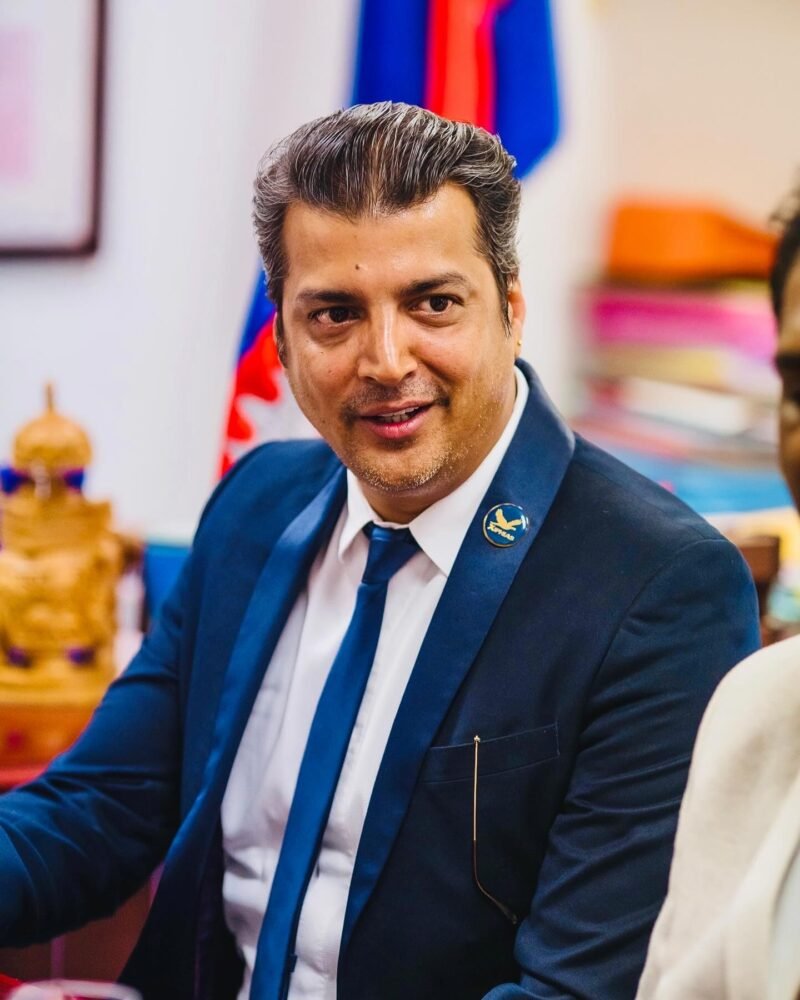
The Cover Story World Profile Story: One of the Best Leaders to Watch Out For in 2025 – Varun Singh, Managing Director, Xiphias
Cultivating the XIPHIAS Culture: Purpose at the Core
Singh firmly believes that “Culture eats strategy for breakfast.” At XIPHIAS, culture is engineered around Purpose, Empowerment, and Recognition. Every team member is aligned with the mission of transforming lives. Managers are empowered to lead with empathy, fostering psychological safety and initiative. Rituals like ‘Client Story Saturdays’ are not mere gimmicks; they are strategic reinforcements, keeping the profound human impact of their work “front and center,” reminding everyone why they do what they do. This value-driven environment is essential for attracting and retaining top talent in a competitive field.
Resilience Forged in Crisis: The Tough Call
True leadership is tested in fire. For Singh, the pandemic presented his toughest decision: pausing international expansion to focus entirely on retraining teams in compliance and operational resilience. “It delayed growth,” he admits, “but strengthened trust and operational resilience.” The lesson was profound: “True leadership sometimes means delaying scale to protect soul.” This decision, prioritizing long-term integrity and capability over short-term gains, revealed a leader willing to make unpopular choices for the health of the organization and its clients.
Mentoring the Next Generation: Trust Before Revenue
Singh is deeply invested in nurturing future leaders. His mentorship involves project shadowing, encouraging professional certifications (like the Cert(IM)), and providing direct client exposure. His advice to aspirants cuts to the heart of his philosophy: “Build trust before revenue, and lead with empathy over authority. The industry rewards credibility and clarity.” He emphasizes that sustainable success in investment migration hinges on ethical foundations and genuine client relationships, not just transactional prowess.
The 2025 Mission and Legacy: India on the Global Stage
Looking ahead, Singh’s personal mission is bold and nation-centric: “To position India as a global hub for ethical, tech-enabled investment migration.” He envisions XIPHIAS evolving beyond a corporate entity: “I want to leave behind a legacy where XIPHIAS becomes not just a company—but a movement that unlocks global access and opportunity.” He sees India not just as a source market, but as a future leader in shaping the ethical and technological standards of the global mobility industry.
Balancing the Scales: Personal Growth Fuels Organizational Growth
Singh avoids the trap of leading a growing organization while stagnating personally. He stays grounded through reflection, continuous learning via IMC forums, and maintaining deep personal client relationships. “I regularly recalibrate my goals,” he notes, “to ensure alignment between impact and purpose.” This commitment to personal evolution ensures his leadership remains relevant and inspired.
Why Varun Singh is a Leader to Watch in 2025
The world should watch out for Varun Singh in 2025 because, as he declares, he’s “building a future where investment migration is not just about movement—it’s about meaning.” His unique convergence of factors creates an undeniable momentum:
-
Strategic Hub & Engine: The potent combination of Dubai as a dynamic global hub and India as a powerhouse engine of talent and demand provides an unparalleled geographic and strategic advantage.
-
Ethical Imperative: In an industry demanding greater transparency, his unyielding commitment to integrity and IMC fellowship standards positions XIPHIAS as a trusted beacon.
-
Innovation Driver: Leadership in crypto-residency, AI-powered platforms, and real estate migration showcases an ability to not just adapt, but define the future of the sector.
-
Human-Centric Scale: Mastering the art of delivering personalized, life-changing impact at scale (6,000+ families!) through technology and culture.
-
Nation-Building Vision: His mission to elevate India’s role in global investment migration is ambitious and has significant geopolitical and economic implications.
Varun Singh embodies the modern leader: technologically astute, globally connected, ethically anchored, and driven by a purpose that transcends profit. With Dubai as his command center, India as his inspiration, and an unwavering compass of trust, Varun Singh and XIPHIAS are poised not just to navigate the future of global mobility, but to author it. In 2025, expect his vision of “meaning over movement” to resonate far louder, redefining an industry and unlocking opportunity on a global scale. He is, without doubt, a leader worth watching closely.
Leaders Story
The Cover Story World Best Leaders 2025, Yalda Hakim: The Voice That Can’t Be Ignored

From Kabul to the global frontlines—how Yalda Hakim is redefining journalism, leadership, and the power of relentless truth in the age of spin.
By The Cover Story
In an era polluted by half-truths, institutional silence, and performative outrage, Yalda Hakim has emerged not just as a journalist—but as a disruptor of global narratives.
She’s the voice world leaders can’t ignore, the presence media conglomerates can’t replicate, and the woman who—just months ago—shattered Pakistan’s decades-old diplomatic mask on terrorism in a single, live interview.
That moment has since been immortalized in clips, UN talking points, and intelligence briefings worldwide. But for Hakim, it was just another chapter in a career defined by truth-telling under pressure.


The Interview That Rewrote Headlines in Every Capital
It was a conversation that began like any other high-level political interview. But as Yalda Hakim pressed former Pakistani Defence Minister Khawaja Asif on Islamabad’s support—or tolerance—of terror groups, something rare happened on live TV: the mask slipped.
Asif, caught off guard by Hakim’s relentless questioning and forensic grasp of timelines, admitted that Pakistan had hosted certain terrorist factions, then attempted to walk it back with ambiguous deflection. But it was too late. The global media cycle exploded. Policy circles were stunned. And Hakim had done what few journalists have dared: she exposed a government narrative in real time, without flinching.
In the days that followed, her interview was cited in foreign parliaments, amplified by security think tanks, and hailed by counterterrorism experts as a “watershed moment in international accountability journalism.”
For Hakim, this wasn’t a takedown. It was a truth bomb dropped with surgical precision.
Video Credit: Sky News
From Field to Frontline: A Journalist Who Doesn’t Play Safe
Born in Kabul and raised in Sydney, Hakim’s rise wasn’t orchestrated by media handlers or PR strategists. She climbed her way to the global stage through battlefields, refugee camps, and authoritarian shadows, reporting what others feared to touch.
When she moved from BBC to Sky News International in 2023, it wasn’t just a career shift—it was a strategic takeover. She transformed global coverage by marrying hard investigation with broadcast intelligence, focusing on storytelling that changed things, not just streamed them.
Today, she’s Sky’s crown jewel—and journalism’s steel spine.
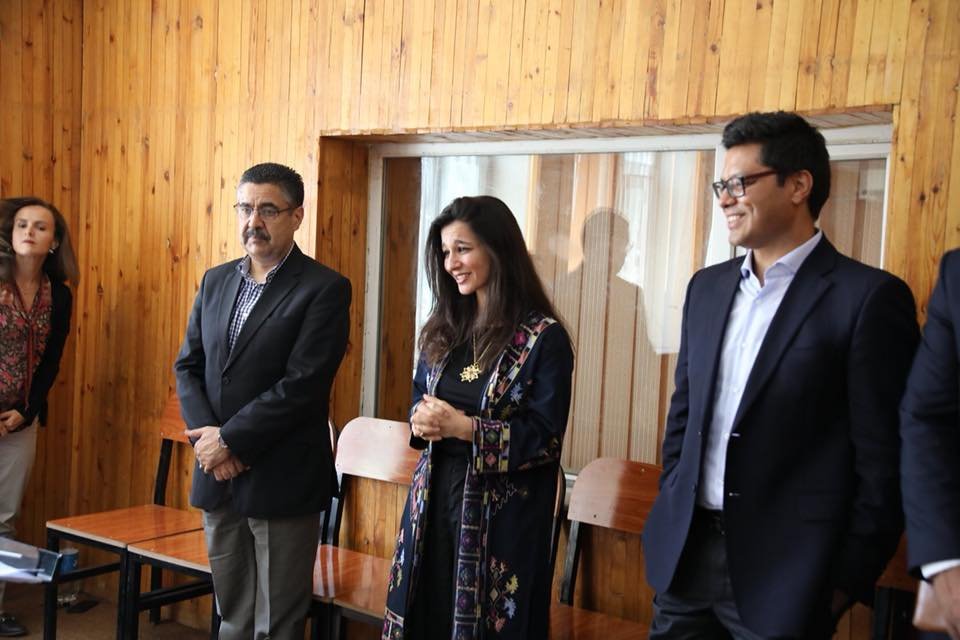
Photo Credit: Yalda Hakim
Redefining the Power of the Press
The Ishaq Dar interview wasn’t a fluke. It was the result of years of earned credibility, meticulous research, and Hakim’s refusal to be stonewalled by titles or talking points. She has mastered the rare art of asking questions that demand answers—immediately.
Her interview with Taliban officials, her coverage of women’s protests in Iran, and her post-conflict documentaries from Ukraine and Libya have made her a de facto authority on state accountability in the modern age.
Where many journalists are content with access, Hakim forces consequence.

Photo Credit: Yalda Hakim
The Yalda Hakim Foundation: Empowering the Truth-Tellers of Tomorrow
Even as her star rises, Hakim’s focus remains deeply rooted in impact. The Yalda Hakim Foundation, launched in 2020, has now expanded its footprint to over seven countries, offering scholarships, mentorships, and media fellowships to refugee and female journalists from conflict zones.
Her foundation now partners with major universities and newsrooms, not just to provide opportunity—but to build an entire generation of fearless, ethical reporters.
What’s Next: Journalism? Diplomacy? Both?
With 2025 shaping up to be a breakout year for Hakim, rumors swirl of a global media initiative spearheaded under her leadership. Others suggest she is in quiet talks for an ambassadorial or UN role focused on global media integrity.
Whether it’s anchoring from conflict zones or influencing peace dialogues behind closed doors, one thing is certain: Hakim is no longer just covering the power structure—she’s becoming part of it.
She Doesn’t Break Stories. She Breaks Patterns.
The interview with Ishaq Dar wasn’t just a viral moment—it was a turning point in global media accountability. It reminded the world that real journalism still matters—and that Yalda Hakim is leading its most important revival.
She doesn’t echo the truth. She confronts it. Amplifies it. And forces the world to deal with it.
In a century that desperately needs clarity, courage, and consequence, Yalda Hakim isn’t just the fastest growing leader of 2025—she’s its most necessary one.
#YaldaHakim
#Leadership2025
#MediaDisruptor
#TruthMatters
#PakistanExposed
#AccountabilityJournalism
#NextGenNews
#TheCoverStory
Leaders Story
Alloysius Attah: The Visionary Leader Driving Innovation at Farmerline Group, Ghana

In the dynamic landscape of agriculture and technology, one name stands out as a beacon of innovation and progress: Alloysius Attah. As the Chief Executive Officer and Co-Founder of Farmerline Group, a pioneering company based in Ghana, Attah has dedicated his career to empowering smallholder farmers and transforming the agricultural sector through cutting-edge solutions.
Farmerline Group is a trailblazer in the field of agricultural technology, leveraging advanced tools and platforms to connect farmers with essential resources, information, and markets. Under Attah’s visionary leadership, the company has become a driving force in promoting sustainable farming practices, enhancing productivity, and improving the livelihoods of countless farmers across Ghana and beyond.
Early life and background of Alloysius Attah
Alloysius Attah’s journey to becoming a prominent figure in the agricultural technology realm began in the small town of Gushegu, located in the Northern Region of Ghana. Born into a family of farmers, he witnessed firsthand the challenges and hardships faced by smallholder farmers, igniting a passion within him to find innovative solutions to address these issues.

Attah’s early years were marked by a deep appreciation for the importance of agriculture and a desire to make a lasting impact. His academic pursuits led him to obtain a Bachelor’s degree in Computer Science from the University of Ghana, where he honed his technological skills and developed a keen interest in leveraging technology to drive positive change.

The founding of Farmerline Group
Inspired by his experiences and driven by a vision to empower smallholder farmers, Alloysius Attah co-founded Farmerline Group in 2013. The company’s mission was clear: to bridge the gap between farmers and the resources they needed to succeed, using cutting-edge technology as a catalyst for transformation.
With a deep understanding of the challenges faced by smallholder farmers, Attah recognized the need for accessible and affordable solutions that could provide them with timely information, market access, and the tools necessary to optimize their farming practices.
Alloysius Attah’s role as Chief Executive Officer and Co-Founder
As the Chief Executive Officer and Co-Founder of Farmerline Group, Alloysius Attah has been the driving force behind the company’s remarkable growth and impact. His leadership has been instrumental in shaping the organization’s strategic direction, fostering innovation, and ensuring the successful implementation of cutting-edge technologies.
Attah’s unwavering commitment to empowering smallholder farmers has been the guiding principle behind Farmerline Group’s operations. He has spearheaded the development of innovative platforms and solutions that address the unique challenges faced by farmers, from access to market information and financial services to sustainable agricultural practices.

Alloysius Attah’s vision for Farmerline Group
Alloysius Attah’s vision for Farmerline Group is rooted in the belief that technology can be a powerful catalyst for positive change in the agricultural sector. He envisions a future where smallholder farmers have access to the tools, knowledge, and resources they need to thrive, enabling them to increase their productivity, enhance their incomes, and contribute to food security on a global scale.
Attah’s vision extends beyond the boundaries of Ghana, as he aims to replicate Farmerline Group’s success and impact across Africa and other regions where smallholder farmers face similar challenges. By fostering collaborations and partnerships with various stakeholders, including governments, non-governmental organizations, and private sector entities, he seeks to create a ecosystem that supports and empowers smallholder farmers.
Innovation and technology in Farmerline Group’s operations
Farmerline Group has been at the forefront of leveraging innovative technologies to revolutionize the agricultural sector. Under Alloysius Attah’s leadership, the company has developed a suite of cutting-edge solutions that address various aspects of the farming value chain.
One of the company’s flagship products is the Farmerline App, a mobile application that provides farmers with real-time access to critical information, such as weather forecasts, market prices, and best farming practices. This app has become an invaluable tool for smallholder farmers, enabling them to make informed decisions and optimize their operations.
In addition to the Farmerline App, the company has introduced other innovative solutions, including:
- Farmerline Voice Services: A voice-based platform that delivers agricultural information and advisory services to farmers through interactive voice response (IVR) technology, bridging the digital divide and reaching even remote areas with limited internet connectivity.
- Farmerline Geodata Services: A geospatial data platform that provides farmers with valuable insights into soil conditions, crop health, and yield potential, enabling them to make data-driven decisions and optimize their farming practices.
- Farmerline Marketplace: An online platform that connects smallholder farmers directly with buyers, eliminating intermediaries and ensuring fair prices for their produce.
These innovative solutions are just a glimpse into Farmerline Group’s commitment to leveraging technology to address the unique challenges faced by smallholder farmers.
Farmerline Group’s impact on agriculture in Ghana
Farmerline Group’s impact on the agricultural sector in Ghana has been nothing short of remarkable. Through its innovative solutions and Alloysius Attah’s visionary leadership, the company has empowered countless smallholder farmers, enabling them to increase their productivity, enhance their incomes, and contribute to food security in the country.
One of the most significant impacts of Farmerline Group has been the improvement in access to information and knowledge for smallholder farmers. By providing real-time data, weather forecasts, and best farming practices, the company has equipped farmers with the tools they need to make informed decisions and optimize their operations.
Additionally, Farmerline Group’s solutions have facilitated access to markets, enabling smallholder farmers to connect directly with buyers and receive fair prices for their produce. This has not only increased their income but has also contributed to the overall growth and development of the agricultural sector in Ghana.
Awards and recognition for Alloysius Attah and Farmerline Group
Alloysius Attah and Farmerline Group have garnered numerous accolades and recognition for their groundbreaking work in the field of agricultural technology and their commitment to empowering smallholder farmers.
Some of the notable awards and recognitions include:
- Forbes 30 Under 30 (2019): Alloysius Attah was recognized as one of the most influential young leaders in the Technology category for his innovative work at Farmerline Group.
- Quartz Africa Innovators (2018): Farmerline Group was named one of the most innovative companies in Africa for its innovative solutions and impact on the agricultural sector.
- Ashden Award for Sustainable Agriculture (2017): Farmerline Group received this prestigious award for its innovative use of technology to support smallholder farmers and promote sustainable agricultural practices.
- Seedstars World Competition (2016): Farmerline Group emerged as the winner of this global startup competition, recognizing its potential to drive positive change and impact in the agricultural sector.
These awards and recognitions are a testament to the visionary leadership of Alloysius Attah and the groundbreaking work of Farmerline Group in transforming the agricultural landscape in Ghana and beyond.
Alloysius Attah’s leadership style and values
Alloysius Attah’s leadership style is characterized by a deep commitment to empowering others, fostering innovation, and driving positive change. His approach is rooted in the belief that by providing the right tools, resources, and support, individuals and communities can unlock their full potential and achieve remarkable outcomes.
One of the core values that underpins Attah’s leadership is a strong sense of purpose. He is driven by a genuine desire to make a lasting impact on the lives of smallholder farmers and contribute to the overall development of the agricultural sector. This purpose serves as a guiding force, inspiring his team and shaping the strategic direction of Farmerline Group.
Attah also embraces a collaborative and inclusive leadership style, recognizing that true innovation and progress can only be achieved through collective efforts and diverse perspectives. He actively seeks input and feedback from his team, partners, and stakeholders, fostering an environment that encourages open dialogue, creativity, and continuous learning.
Furthermore, Alloysius Attah’s leadership is characterized by a relentless pursuit of excellence and a commitment to continuous improvement. He encourages his team to constantly challenge the status quo, explore new ideas, and push the boundaries of what is possible. This mindset has been instrumental in driving Farmerline Group’s continued growth and innovation.
Alloysius Attah’s journey and future goals for Farmerline Group
Alloysius Attah’s journey from a small town in northern Ghana to becoming a visionary leader in the field of agricultural technology is a testament to the power of perseverance, innovation, and a deep-rooted commitment to making a positive impact.
Through Farmerline Group, Attah has not only transformed the lives of countless smallholder farmers but has also paved the way for a more sustainable and prosperous future for the agricultural sector in Ghana and beyond.
As Farmerline Group continues to expand its reach and impact, Alloysius Attah’s future goals are ambitious yet grounded in a steadfast commitment to empowering smallholder farmers. He envisions a future where Farmerline Group’s innovative solutions are adopted on a global scale, enabling farmers around the world to access the resources and tools they need to thrive.Join the agricultural revolution and experience the power of Farmerline Group’s innovative solutions. Visit [www.farmerline.co](https://www.farmerline.co) to learn more about how our cutting-edge technologies can empower your farming operations and unlock new opportunities for growth and success. Together, we can shape a more sustainable and prosperous future for agriculture.
Alloysius Attah’s remarkable journey is a testament to the transformative power of vision, innovation, and unwavering determination. As he continues to lead Farmerline Group towards new horizons, his impact on the agricultural sector and the lives of smallholder farmers will undoubtedly leave an indelible mark, inspiring future generations to embrace technology as a catalyst for positive change.

-

 Leaders Story6 months ago
Leaders Story6 months agoThe Cover Story World Best Leaders 2025, Yalda Hakim: The Voice That Can’t Be Ignored
-

 Business Story6 months ago
Business Story6 months agoAmrit Acharya: Building the Infrastructure of a New World
-

 Brand Story1 year ago
Brand Story1 year agoThe Best 30 Emerging Indian Brands: Innovators Shaping the Future
-

 Business Story6 months ago
Business Story6 months agoAI Integration in Indian SMEs: Revolutionizing Traditional Business Models
-

 Business Story6 months ago
Business Story6 months agoMAG Signs Strategic Partnership with MultiBank Group to Tokenize $3 Billion Real Estate Assets
-

 Business Story6 months ago
Business Story6 months agoRemote Work Evolution: How Indian Corporates Are Redefining Workspaces
-

 Business Story6 months ago
Business Story6 months agoEducation Technology: Bridging Learning Gaps in the Digital Age
-

 News Shots6 months ago
News Shots6 months agoWhat is the image of the Virgin Mary near the altar?



